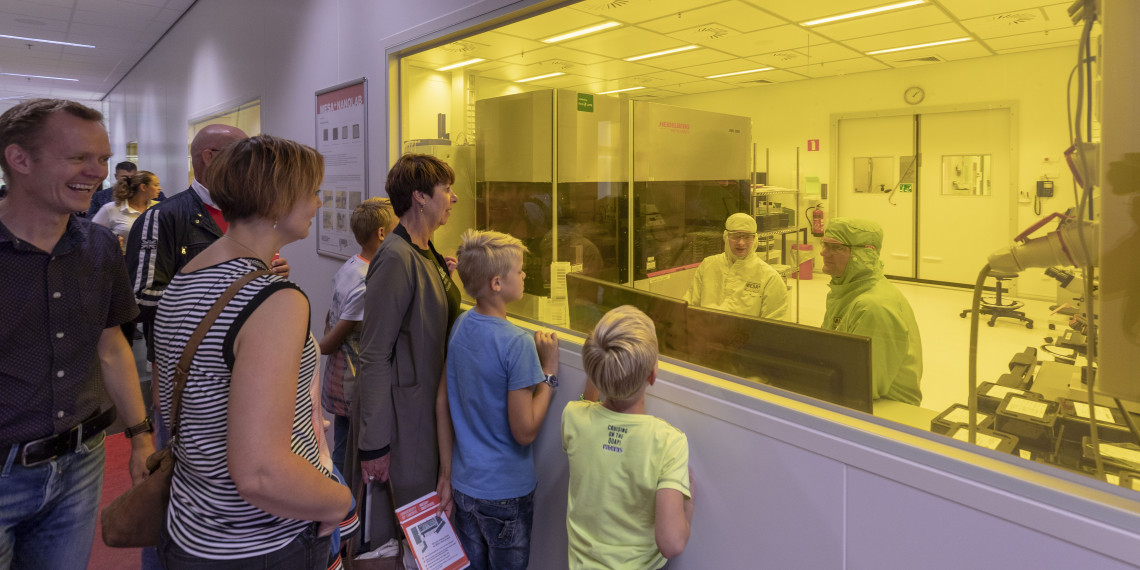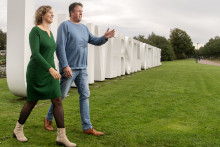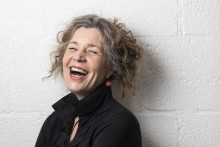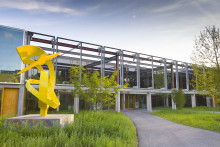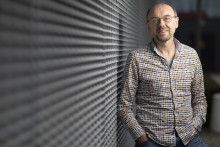2020 was a year like no other. We all believed ourselves to be expert virologists. Everyone has joined the discussion. Do we wear a face mask? Yes, but it should be our choice. What about ventilation? Where possible, yes please. Who is getting sick? Generally the most vulnerable members of our society, but sometimes young people as well. Is the cure not worse than the disease itself? Hospitals are quickly running out of beds. Are we testing enough? No, we have to use rapid testing. Are those tests reliable? Not all of them. What do we test for? What do the figures of the RIVM tell us? Come to think of it, are the farmers still angry?
Scientists and citizens alike got more tangled up in this complex web of questions than ever before. In a time of crisis, our whole society joins the conversation. Although this leads to new insights, it also leads to polarisation. Scientists have to descend from their ivory tower. At least, that is what it looks like. The concept of Citizen Science has been a hot topic in the scientific community for a while now. In other words, it is high time for an in-depth exploration.
‘Citizen Science bridges the gap between society and the academic world’
Too big for the scientific community alone
Citizen Science is hard to encapsulate with a single clearly delineated definition, says Sabine Wildevuur. She is the director of DesignLab, which is gradually becoming the epicentre of Citizen Science at the UT. ‘I would rather not use any definition at all, relying instead on the ten principles of Citizen Science by the European Citizen Science Association. These allow you to hold research up to the ‘yard stick’ of Citizen Science.’
According to Wildevuur, one key principle is the active involvement of citizens in research. ‘Citizen Science starts with the social challenges of our time. These are issues for which scientists need the help of society and citizens, and vice versa. Think of climate change or the corona crisis, for example. Generally, these problems come from bottom up, out of society. In this manner, Citizen Science bridges the gap between society and the academic world.’

Another picture taken at the UT 'open house', in 2018.
The active involvement of citizens can take many forms, Wildevuur knows. ‘From one extreme, where citizens take all the initiative for research, to the other, e.g. research for which citizens carry out a range of tasks like counting birds in the dunes or their gardens. This is all part of Citizen Science. The most important thing is that it concerns thorough scientific research.’
Gaston Remmers, director of the My Data Our Health foundation and an expert in the field of Citizen Science, is willing to go one step further in the search for a clear definition. ‘To me, Citizen Science is a deeply humanising endeavour that unlocks the intrinsic research capabilities of citizens. The humanising aspect is particularly important to me. Above all, citizens want to be seen as human beings, not as lackeys of the scientific community. I believe this symmetrical relationship between citizens and scientists forms the bottom line of Citizen Science.’
‘Amateur astronomers are discovering new planets’
Remmers, who also works at the UT as a guest researcher, still sees a certain degree of asymmetry in the relationship between citizens and scientists. He believes the academic community and our society have largely been out of sync for decades. ‘It makes perfect sense,’ he says. ‘Darwin was no scientist either. He was simply a man with excellent observational and analytical skills. He utilised inherently human characteristics: we build something from scratch, we discover, we observe and we test our findings. Those skills were only formalised and professionalised after Darwin. The term ‘scientist’ was only coined in the late nineteenth century. That extensive professionalisation has brought us a lot, but it has also created a monopoly on curiosity.’
Diving masks and noise pollution
Nevertheless, Remmers is convinced that citizens are also brimming with curiosity. He believes an academic or healthcare institution is the perfect setting in which to tap into and capitalise on that curiosity. Citizen scientists are active in myriad fields, he knows. ‘Amateur astronomers are discovering new planets, bird counting in backyards produces an invaluable treasure trove of data; lone scientists could never achieve anything on that scale. There are even gamers who are mapping out the structure of proteins when scientists’ algorithms are unable to do so.’
Wildevuur also has an example from the current crisis. ‘The Decathlon diving masks that were repurposed as respirators during the height of the first wave. The open maker community grew quickly. Our own TechMed Centre also used the masks as a starting point. That greatly expedited the application.’
Karin Pfeffer, professor of Urban Studies at the ITC faculty, utilises Citizen Science for her research into sound, among other things. ‘It is a very important phenomenon in urban environments. During the corona crisis, you could already hear that our cities had become more quiet. Sound is certainly not necessarily a bad thing. We try to map out sound with the help of citizens. Where do we enjoy it and where do we prefer peace and quiet? To what extent is people's perception a factor? Where should you intervene? It is a facilitated process that uses the help of citizens to bring in local knowledge.’
‘As a scientist, you often do not really know what is happening,’ Pfeffer admits. ‘Citizens have a much better understanding of the local context. If you ignore that, you might design something that is ultimately useless. Spatial interventions and solutions have to tie into local issues. We want to generate knowledge that has a positive impact on spatial planning and policy. To do so, you have to generate knowledge that can actually be used to solve social issues.’

The eHealth House in the TechMed Centre. An example of a 'citizen scenario' in an academic setting.
Dialogue
Involving citizens in science not only demands a lot from scientists, but also from the citizens themselves. Pfeffer experienced that herself within her field of geo-information and earth sciences, which often takes place in developing countries. ‘There are vast unexplored areas to be found there - sometimes literally so. In those developing countries, the involvement of citizens is invaluable. However, researchers must realise that they are asking a lot from those citizens. Taking part in your research costs them valuable time that could otherwise be spent working and earning an income. This means citizens are more than suppliers of data. They should also receive the credit for their contribution.’
Citizen Science should therefore be a joint process, Pfeffer argues. ‘Some groups are difficult to approach. Depending on what you want to study, it is sometimes better to involve those groups in Citizen Science projects. The question is how to do that. For starters, we must show citizens what is in it for them. It is about their intrinsic motivation. They must understand the relevance of the project for their own environment. Once citizens do get involved, I am often surprised by just how interested they are. We must make it a process of co-creation between citizens and scientists. That starts with something as simple as feedback. When citizens are asked to take part in a research project, they will - at the very least - want to know how it ends.’
‘Especially during a time of crisis, you need every observation and insight you can get’
According to Remmers, this dialogue between researchers and citizens is crucially important, especially during a time of crisis. He believes the relationship between scientists and citizens is akin to the one between doctors and their patients. ‘There is formal expert knowledge and informal, often contextual, knowledge. Those two have to be brought together, both to develop the best treatment for a patient and to gain a better understanding of a situation in a more general sense.’
Remmers has seen a similar relationship emerge during the current corona crisis, albeit at the macro level. ‘The RIVM and the OMT are the physicians of the Netherlands. However, that does not mean they have all the answers. Especially during a time of crisis, you need every observation and insight you can get. I know from experience (Remmers is a former cancer patient, ed.) that patients become exceptionally creative in critical situations. It sets something off in them. The same goes for the patient in this scenario; the Netherlands itself. We have all been affected and are looking for solutions. I believe in the adage that no one is dumb enough to be one hundred percent wrong. You should therefore not necessarily answer citizens’ questions about the coronavirus; that is the old style of science communication. Instead, you should look for solutions and develop well-founded interpretations together.’
This is the perfect time to get people involved in science, Remmers says. ‘It is what sets us apart from totalitarian societies. We understand that everyone can make a valuable contribution in their own way. We seem to be losing sight of that a bit during the current age of corona. Of course, we have to manage different degrees of expertise, but quickly dismissing aberrant voices as conspiracy theorists is counter-productive and breeds populism. Both our society and the scientific community can benefit from the power of dialogue. Facilitating that dialogue is the essence of Citizen Science.’
Citizen Science is ultimately about scientists and citizens respecting and trusting each other, Wildevuur argues. ‘For example, when a citizen suffers from an exceptionally rare medical condition, they often know more about it than their physician. It is about bringing everyone's knowledge together. Only then can we look at and tackle issues from a different angle.’


